Is your home an investment? (debate question)
We had a great debate on this forum years ago, but I can't find it, and I figure the arguments might have changed since RE has changed so much in the past few years.
So, just to keep things interesting - what do you think?
Is your home an investment?
Comments (37)
jewelisfabulous
10 years agolast modified: 9 years agoThe value of our home certainly is figured into our net worth, but the return on investment is much lower than what we've earned (and continue to earn) on our other investments. The average of our home's appreciation in the last 10 years is about 4% a year. If any of our stocks was performing like that, we'd probably dump it. However, we won't dump our house in order to rent because of the emotional, non-investment value we ascribe to it (and because it's paid for!). So, I'd have to say that our primary family home is more of a hybrid -- part investment, part not.
Acadiafun
10 years agolast modified: 9 years agoThis is a hard question for many of us. For example, I could have paid my old house off in 5 years and then have more money for retirement savings. Yet I wanted a better quality of life when my neighborhood changed.
Factor in that both my DH and I had fathers who died before they reached the age of 53. Anticipated lifespan is now a factor.
Some research has shown that living in a peaceful neighborhood (with anticpated higher cost) may add years to your life. So what do you invest in? Quality of life becomes an investment even if it costs more because it may mean longer life.
I decided to aquire more debt that I hope I pay off before retirement, because I hope to live and work until retirement. Not an easy feat with my and my spouses family history.
So for some it is easy to do the math with dollars and cents, for some of us it is a bit harder.
Related Professionals
Palos Verdes Estates Architects & Building Designers · Murraysville General Contractors · Bon Air General Contractors · Everett General Contractors · ‘Ewa Beach General Contractors · Greenville General Contractors · Jackson General Contractors · Mashpee General Contractors · Merritt Island General Contractors · Norman General Contractors · Seal Beach General Contractors · Summit General Contractors · University City General Contractors · Walnut Park General Contractors · Miami Home StagersUser
10 years agolast modified: 9 years agoBy the time you count the interest for the mortgage, you are very lucky if appreciation keeps up with that. And since its loaded on the front end, and people very rarely stay in one place long enough to over pay off a mortgage, it sways the balance scale towards an expense rather than being able to recapture the appreciation. Most people end up paying that appreciation to a realtor in 5-7 years.
So, what kind of "investment" costs you money in upkeep and maintenance, and doesn't sell for any more real money than you paid for it? Sure, it can act as a forced savings account for those that don't have the discipline to otherwise save, but without the magic of compound interest, and the only way to cash it out is to sell it. Then you still have the issue of how and where to establish a domicile for less so that you actually can access some of that forced savings.
evaf555
10 years agolast modified: 9 years agoYears ago on this forum, I repeated what was written in "Rich Dad, Poor Dad"; points Hollysprings has brought up.
I was vilified. Of course, that was before real estate prices took a nose dive.
Late husband did most of the work on our first house himself. Considering the cost of materials, and the mortgage payments over 13 1/2 years, when we sold it we almost broke even.
gyr_falcon
10 years agolast modified: 9 years agoYes, but we only care that we break even or better when we sell. Odds are excellent that we will have a decent return though, due to our market area. Before we bought 3.5 years ago, our rent increased more than 100% over the last ten years. We bought a house near the very bottom of the bust, for a good price plus a $10,000 grant. Our payments for a house, that is 840 sq' larger than the rental, are only $230/month over our previous monthly rent amount. The housing market here has surged---our house would sell today for 27-30% more than we paid for it in 2010.
But cashing out is not what we want to do, even though I expect values to settle in a bit lower than where they are now. Rents will continue to increase in our area--but our mortgage will not. Purchasing has given our housing costs stability, for a lower dollar amount per month than renting a like-sized home. And, when we decide to move, we can sell the house for more than we paid or rent it out for more than the monthly mortgage payment (current rent value is already $500-600 over our monthly mortgage payment).
So, yes, I think we made a good investment.
sas95
10 years agolast modified: 9 years agoI have never looked at owning a home as an "investment" and I know from experience sharing my opinion that it is not a popular one. We paid cash for our home so no mortgage interest, but have renovated to our tastes. We plan to stay here forever but if we were to have to sell soon, we may break even. Or maybe not. If prices were to spike, that's great, but not something I factor into my financial planning. To me, owning is great for many reasons. Fixed housing costs. Quality of life. But not an investment in my mind.
evaf555
10 years agolast modified: 9 years ago"Yes, but we only care if we break even when we sell."
That is precisely the point, isn't it? If you intend to never sell, then by definition, it's not an investment. Even if one sells a house, you still have to find another place to live.
"The housing market here has surged---our house would sell today for 27-30% more than we paid for it in 2010. "
Yes, up until the 90s that was a given in selling a house, pretty much anywhere. Things have a habit of changing in unpredictable ways.
How many people are struggling today because others told them that owning a house was a great investment (even if they had no financial acumen, no budgeting ability or budgeting history) . I know one family recently foreclosed on whose rationale for buying a house was as simple as, "The mortgage is less than rent." They were completely oblivious to the other expenses of owning a home, and "____ State Housing Authority" did nothing to educate them .The housing authority took a look at their paychecks, verified they were going to be first-time homeowners, and told them the price range of homes to look for. Their financial problems started almost from the moment they took possession of the house 20-odd years ago. The thousands of bankruptcies and repossessions that arose from those housing programs were something my father-in-law warned about in 1985. He might have been talking about it before then, but that was when I married into the family.
That being said, I remember cleaning up one evening after Husband's demolition work. I hauled out the shop-vac, and pausing for a moment to think, "oh my gosh, I can't start vacuuming at 10:30 at night. I'll wake the...Oh,wait. There are no downstairs neighbors."
Is that an investment in "peace of mind?" Maybe.
ineffablespace
10 years agolast modified: 9 years agoI would say that in a lot of areas, based upon how much you actually pay over the life of the mortgage, for many people it really is not.
We did find the original mortgage on our house from 1965 and I paid 20 times the original price of the house after the price drop in 2008. Adjusted for inflation, 1965 dollars to current dollars the price of the house outstripped inflation by 3x. So if you lived in these houses for 40 years, yes they have been a good investment. I don't think this is typical.
However, the neighborhood was terrible then and the houses were built to attract middle-class people into a former slum, so you were taking certain risks at that time. I don't think this would happen in a stable neighborhood.
The other aspect is that the Newest houses being built in the neighborhood (which are bigger and higher quality than the typical existing stock) are One Hundred times the cost of the original cost of my house. Adjusted for inflation these houses still would have been 11-12x the cost of my house in 1965 --I don't know what this says about the overall value of the houses in the neighborhood. Our smaller cheaper houses may continue to hold value, and these could be the equivalent of the giant 19th c. houses that plummeted in value.
This post was edited by ineffablespace on Tue, Jan 14, 14 at 10:10
gyr_falcon
10 years agolast modified: 9 years ago@evaf555
Actually, I wrote break even OR BETTER.... ;-) And I did not say I did not plan to sell; just that I did not plan to sell at this time. But even if we do not sell in our lifetime, the house goes to our children and so it is still an investment.Location does matter. I live in South Orange County, CA. More people are wanting to move here every year, but the buildable land is about tapped out. Foreign interest and purchases are high, especially in recent years. I do believe those purchases may have produced recent prices that are too high to sustain. But it is a very good bet that the prices are not going to fall below the bottom line of 2011-12 anytime soon here--if ever. I'm not a fortune teller, but it would take something extraordinary happening for me to be wrong. We also planned so our next purchase will be a downsize, which builds in an additional little cushion; upsizing in our area is often a difficult thing to do financially.
I agree, many people who really cannot afford a home purchase buy homes. It is sad, really. And the fallout affects everyone. My husband and I waited for many years to be able to make a smart purchase. IMO the housing train wreck was so easy to predict, the understanding of why people continued to feed into it still eludes me.
We already pay less than local rent for our mortgage plus other owning expenses. When we get to the bathroom and kitchen remodel phases, we may well choose quality of life over getting everything back financially. That is an investment too, just a different kind. Being able to paint our walls something other than white, or beige, has been a long suspended pleasure. And to one day be able to feel the smooth coolness of granite countertops... (ok, after hanging around this joint for a while, I'd really love to have soapstone. But I'm too $$ wary to push for that indulgence lol).
sail_away
10 years agolast modified: 9 years agoI agree with points from all of the posters so far. My primary residence is certainly not an investment in the traditional sense. However, we would have paid more per month if we rented (and had a less comfortable home) over the years. At least, in the end, we have something to show for our money. Also, I think that if we consider how much we pay for our home in terms of mortgage, taxes, renos/upkeep,etc., it's only fair to also factor in what we would have paid in rent (with nothing to show for it in the end). Obviously, if we didn't own a home we would have to pay to rent something over the years. If you offset what was paid on the mortgage and taxes with what you would have had to pay for rent, that offsets (or, in some cases, even negates) the cost of the mortgage over the years. That is especially true when you pay off your mortgage earlier than 20-30 years.
I don't believe that most of us consider the purchase of a primary residence to be an investment in the traditional sense. But I also don't think it's unreasonable to consider it a sound fiscal decision.
The above observations are also based on the fact that we never bought a home during a real estate bubble when home values were greatly inflated and eventually dropped. We purchased our home when costs were low, with the intention of staying there. Never having been upside down on a loan or having to sell a home at a loss certainly influences my thinking on the wisdom of buying a home. Although traditional investments also carry a risk of loss, there are not the emotional ties or sense of stability and security attached to traditional investments as there seem to be with a home.
sheilajoyce_gw
10 years agolast modified: 9 years agoWe too live in coastal South Orange County, Ca. We bought this house over 36 years ago and had no idea that we would be here this long. It was the most expensive house we had ever bought and we struggled some the first couple of years with a new baby and job decline, but we wanted a spacious home with good schools with our oldest ready for kindergarten. Over the years, we added to the mortgage to build 3 modular homes on raw land. That is almost paid off. We saw this house quintuple in value, and now could not rent for the pittance we pay in the last few years of this mortgage. We have stayed here after the kids grew up and went out on their own because the area is still quite nice, and we want to have room enough for the kids and their families to spend the night whenever they wish, but especially at the holidays. Home values dipped a lot during the bubble burst, but now they are close to the highs we saw before that decline.
We could not rent a one bedroom apartment at the same price as our mortgage, and a condo would be considerably more costly than the price the sale of this house would bring also.
Zoe52
10 years agolast modified: 9 years agoI really think that depends a lot upon WHERE you live. If you are in an area that continues to have good employment and lots of people moving in.. then, yes, it helps a lot. However, if you live in an area that is beginning to decline, or more people are moving out then moving in, then you have to take your losses as we did. In spite of living in this area for almost 30 years we ended up selling more than 100k less than what some realtors wanted us to list it for. Eventually we ended up selling 25K less than even what Realtor's thought we would get at our open house. Living in one of the worst house selling areas in the country has NOT been fun, but at least we will be closing tomorrow am.
Debbie Downer
10 years agolast modified: 9 years agoI have a two flat, live upstairs and rent downstairs apt. in a reasonably desireable area and as an investment I've come out ahead but not like sudden wealth or anything -tax writeoffs are especially advantageous. btw I wish more people - first time homebuyers, young couples - would owner occupy - it strengthens the neighborhood. Not like the other unit pays all the bills but it did allow me to get something better than I would have otherwise been able to afford - with payments + all expenses comparable to rent. The appreciation over the past 12 years has been about 30%, not fabulous but not bad.
robo (z6a)
10 years agolast modified: 9 years agoI know a few people who owner occupy and it seems like a great way to start out...or to continue! I've had various landlords who live modest lifestyles in larger cities , but they owner occupy amazing sets of flats in great locations that are now worth $$$$$.
nancylouise5me
10 years agolast modified: 9 years agoNope, we don't consider our home as an investment. It is a place where we live and raise our family and make memories. Doesn't matter what we have remodeled or upgraded. We did it for our own pleasure and enjoyment. We didn't buy it to see how much money we could make off of it when and if we decide sell. Our investments are stocks and bonds, etc. Definitely not an investment. NancyLouise
c9pilot
Original Author10 years agolast modified: 9 years agosail-away said: I don't believe that most of us consider the purchase of a primary residence to be an investment in the traditional sense. But I also don't think it's unreasonable to consider it a sound fiscal decision.
and nancylouise said: Nope, we don't consider our home as an investment. It is a place where we live and raise our family and make memories. Doesn't matter what we have remodeled or upgraded. We did it for our own pleasure and enjoyment. We didn't buy it to see how much money we could make off of it when and if we decide sell.
These statements are most along the lines of what I think. While we do own houses & land that are investments, along with stocks and bonds and such, our home is NOT an investment. If we happen to make some money if/when we sell, great. It was a fiscal decision to buy this home based on what we could afford but not the most expensive home we could afford, and savings on taxes, insurance and boat slips (boats in canal in backyard vice paying $100's/mo for a slip/storage at a marina)
Right now we'd be lucky if it was worth 2/3 of what we paid for it. Few buyers are going to like the sea turtle backsplash that I put in for my enjoyment - it's too personal. But we can't put a price on the nationally top-ranked schools are kids are/were in, the friends we've made here, the lifestyle we've established, how nice it is to have lived in one place for over 6 years now! (the longest I've lived anywhere my whole life)
gyr_falcon
10 years agolast modified: 9 years agoAre you kidding? The sea turtles are stunning and the colors fit in very well with the backsplash. If buyers don't care for it and think it is too personal in taste, then it might be that they lack personality. lol I'm kidding, of course. But not about that stunning part.
ncrealestateguy
10 years agolast modified: 9 years agoPersonally, I would never invest in a condo... too much control of your property is in the control of others. Just my 2 cents.
robo (z6a)
10 years agolast modified: 9 years agoI'm struggling with it, as we plan to do expensive remodels to a house we bought at the mid-top of our neighborhood I don't expect to see all the remodel cash back. At the same time our house value has appreciated significantly in the two years since we bought the house and the neighborhood is climbing, so it would be nice if it did return something at the end of the day. We don't need it and aren't counting on it, it just would be nice.
In my city renting downtown is much cheaper than owning downtown. So from a monetary perspective renting would always be the way to go if you want to be close to the city center.
Sometimes I wonder at the poor rate of remodeling returns when I look at the prices that fully renovated-to-new houses command in my neighborhood. I wonder if the rate of return changes if you live in a desirable neighborhood with old/rundown housing stock. I always think of the smaller house down the block that sold for over $100,000K more than we bought our house for, only because it was remodeled tastefully. Whereas remodeling in the suburbs might not return as much as there is usually a new home around the block a buyer could go for instead.
c9pilot
Original Author10 years agolast modified: 9 years agoNCrealestateguy- But would you live in a condo as your home? (assuming there was a nice one in the area you wanted to live with the amenities you'd like) And then you wouldn't consider it an investment?
(It's hard for me to picture this in NC because I'm only familiar with the eastern side of the state where I can't picture this scenario at all, unlike here in FL, where I know lots of people ready to move into a condo downtown, but they can't afford it)Gyr_Falcon - my whole kitchen is all cherry and stainless and black - very sterile - so I wanted to add some COLOR knowing that others wouldn't necessarily like it - it's for me. I don't know if you can tell, but the tiles are 3D - even the "waves" are rippled - I'm always "petting" the turtles when I'm washing dishes....but they were also very, very expensive custom tiles and if a buyer ripped them out I just wouldn't want to even know. But I'll probably be old and senile so I won't care - planning on living here a long, long time.
gyr_falcon
10 years agolast modified: 9 years agoc9pilot- I'd probably have given them all names by now. :) Whatever the cost, they likely were worth every cent in ongoing enjoyment. The backsplash is nice, but the tiles really make the area visually exciting. I like how the sink (water) ties into the ocean water.
ncrealestateguy
10 years agolast modified: 9 years agoC9, I am of the personality that I could never live in a condo. I can understand why some people would. I am an outdoorsy type guy... landscaping, gardening, mowing, fishing.
And, yes, I think purchasing a home is an investment, but one that is unique, in that one can "enjoy" the investment, even somewhat if it does not appreciate. RE is unique in this perspective. There are not too many places where you can invest your money with the probable appreciation and at the same time enjoy (in the legal sense of the word) the investment product.oklahomarose
10 years agolast modified: 9 years agoI bought a house for the simple reason that I wanted lots of animals and could not do that as a renter. (I am down to one dog, six cats now after 11 years in house...hopefully, chickens soon). I do love the fact that I bought small in a good neighborhood, and my house has appreciated. I certainly add the value when I tally my net worth, but I don't really think about it beyond that. I have many investment properties, and they are my pension, what I will depend on for income when I retire, but it will be nice to have a paid for roof over my head. I absolutely value home ownership.
mojomom
10 years agolast modified: 9 years agoYes and no. Yes, technically it is an investment to the extent that it is an asset considered as part of my net worth that has appreciation potential. But no, I didn't view it as an investment when we bought it. I viewed it as a nice place to live and raise my family and the idea of resale didn't even cross my mind when I bought the house. If I put on a new roof, built an addition and updated the kitchen and other areas, I did so for me, not with an eye to resale. And I continued with those thoughts for the next 25 years.
Now that retirement time is approaching,I am seeing this house in a different light. It is an investment that I can sell and help fund my dream retirement home elsewhere. And I have taken possible views of future buyers into account with most recent improvements. However, as much as i love this house, i recognize that it will be a hard one to sell. It is an larger older charming home with a strange layout. It has worked well for us but it is going to take an emotional buyer who wants it for its charm and history, who is willing to look past the fact that the master bath is not ensuite, but fall in love with the fact that it is fabulous even if not technically ensuite. This is a fabulous entertaining house and at parties we typically get two types of comments, those that simply say something like "I love your house" or "what a great house" and those that go into the master bathroom and come out raving that it is the best bath they've ever seen "oh, I could just live in there" and pretty soon they will have drug all their friend in to see the bath. It is actually pretty amusing. Other quirks are that although it has a nice back bedroom, the only access is either thru the master or from the courtyard. We use that room as an office exercise room, but someone looking for a four bedroom house probably won't be interested. There is one other small bedroom near the master and the fourth bedroom is entirely separate in the wing with the great room. That was our DD's bedroom when she was a teen and it was perfect --she had an ensuite and large walk-in closet and the great room was her domain. That wing might work for a similarly situated family but would also be a nice mil wing.
When we eventually put it on the market, it will be interesting to see if we get a quick sale to an emotional buyer or whether it becomes a white elephant on the market and we have to wait until the right buyer comes along. It will be a difficult house to price. It has the size, finishes and charm to put it near the top of the market and it has been well kept, but how do you account for its quirks? Sooner or later I guess the market will let us know.
Oleander15
10 years agolast modified: 9 years agoYes and no. We recently bought our home which we plan on living in till the day we are both dead. It is our dream home, the property is adjoining my family's property, some of which will be mine from inheritance eventually. It is big enough to accommodate children when we have them. It is rural and in an area where property values our increasing and have been for decades as farmers sell out to developers. We also bought it as a short sale and at $35k less than it appraised for- then did $10k worth of work ourselves and it is now worth a little over $70k more than we paid for it. Our payments are very low and easily manageable even if one or both of us were to lose our jobs. So it is an investment in the sense that we should always be able to sell it for more than we have into it. But, unless something truly horrible happened, we plan to stay here forever so we don't really care what we could sell it for.... However we like knowing that if we did have to, we would come out pretty far ahead.
mary_md7
10 years agolast modified: 9 years agoI don't really see my home as an investment, but as a place to live. When looking to buy, though, I took into account factors that would make for a good value and sale down the line.
My home is worth more than twice what I paid for it in 1996 and about 5 times the current mortgage balance. When we sell in a few years, we'll walk away with six figures in cash.
If I added up all the PITI taxes paid over the years, would I actually make a profit when selling? No. But I have to live somewhere, and if I'd been paying rent, the net outlay would be much more than the net "loss" on the house payments.
alisonn
10 years agolast modified: 9 years agoI look at it that way in the sense that I always consider resale value before purchasing and before making any "improvements." My husband used very expensive finishes in our 1,900 square foot house and I don't think we will come close to recouping that--no one expects/or will pay a premium for those finishes in what today is considered a small house. However, if this was our last house, WE would enjoy the finishes.
My sister bought a house across from the firehouse because the price was right. It was also on the market for two years, even at a low price for the area. I worry very much that if she had to sell due to some unexpected event, it would be a big problem. So, in that sense, you have to think about it as an investment, if you don't want to lose the money you put into it in the first place.
DwayneHutchins
10 years agolast modified: 9 years agoMy home is not an investment, it is a place to live where I can modify it to suit my tastes and needs, have pets, and not worry about being evicted at the whim of a landlord. I bought my home on mortgage from Safebridge Financial Group, Toronto. But then there are people who treat it as an investment.
The reality is that given how real-estate prices can move sharply in one direction or another for a period of years, there are opportunities to generate favorable returns in real estate, including the real estate that happens to be your home. Whether this comes out to be a favorable investment or not, though, depends on whether you're willing to wait and only buy when the price is right, and whether you're prepared to sell if the prices rise too far too fast. and If you aren't ready to take those kinds of actions, you aren't really treating your home like an investment.violetwest
10 years agolast modified: 9 years ago"My home is not an investment, it is a place to live where I can modify it to suit my tastes and needs, have pets, and not worry about being evicted at the whim of a landlord."
This.
I look at my home like it's a long term lease. If I get 10 good years out of it I'll be thrilled. If I'm very, very, lucky, I'll be able to live in it for the rest of my life.
This post was edited by Violet.West on Wed, Jan 29, 14 at 12:45
User
10 years agolast modified: 9 years agoOur home is not an investment in that we are not counting on selling it for retirement income, no.
christopherh
9 years agolast modified: 9 years agoI remember the conversations the Op refers to. It was during the housing bubble when people were watching real estate prices continually rise.
There were posters there who would get upset if the kids played on the front lawn because it affected the value of their 'investment'.
I was scorned because I said time and again homes were not supposed to be an investment, but rather a place you put down roots and raise your family. A place the kids come 'home' to after they're out on their own. I got a lot of flack for that.
It was a different time, but such a short time ago. Posters were telling me I was nuts to have a fixed rate mortgage when I could have "so much more house" with an ARM.
I never bought more house than I could comfortably afford. I never went near those ARMs.
Because only a fool thinks interest rates will never go up.edlincoln
9 years agolast modified: 9 years agoSurprisingly, I think I'm going to be one of the few people saying "Yes"...but it's a very risky one. If you buy a home when prices are going up, you can make a killing. If you buy at the wrong time, you lose your shirt.
The problem is a house is an extremely undiversified real estate portfolio that is heavily leveraged and comes with tax implications so complex most people don't understand them. People who would never think of putting 20% of their portfolio in one stock put the bulk of their net worth into a single piece of real estate without hesitation. Since the Great Depression it's been illegal to leverage your stock portfolio as much as people leverage their house...because people figured out leverage dramatically increases market volatility and risk.
Basically it is an extremely risky investment that people think is safer because it is familiar.
Worse, your house is an illiquid asset that people have so much emotionally invested in, they make decisions that aren't rational from a fiscal perspective. People don't necessarily sell their homes when they can no longer afford them.
Yet when people start thinking about that new kitchen, they rationalize it as an investment and delude themselves into thinking they will get their investment back. Many buy a home with a vague notion they will sell it and retire off the proceeds.
It bugs me when people ask questions about whether this or that luxury renovation will pay for itself. Statistics show the answer is "usually not". Even if it does, though...putting $20,000 into an "investment" that gives you the $20,000 back in 10 years isn't as good a deal as just putting it in your 401k.
People tell you to go for qualities in a house that you don't particularly want because they will increase the resale value. On the other hand, if you genuinely *DON'T* want something others want, it is a chance to get a bargain when buying a house.
Supply and Demand...the house that has what everyone is demanding right now is likely to be way more expensive, so you will pay less now.
This doesn't apply if you are considering a change to your house that others don't like. Even then, though...Are you going to live in a beige house for 20 years because buyers like beige? These things are fads, and could change before you sell.Following the advice to "buy the most house you can afford" or getting an ARM are risky real estate market gambles...if the markets go down or you suffer a financial setback. you are screwed.
As far as the real estate agent who didn't own a home: I find there are two types of real estate professionals. The "Mommy Track" (Or "Daddy Track") ones who are looking for a job with flexible hours...and the Hustler/Salesmen/Gambler type who dominates the top of the profession. The latter tend to be big spenders. There is statistical evidence folks in sales tend not to save money...so the high-end real estate agent you are thinking of may spend as fast as he earns and not have the down payment for a
house.This post was edited by edlincoln on Fri, Sep 5, 14 at 1:40
C Marlin
9 years agolast modified: 9 years agoI believe a house is an investment for different reasons. One can choose to buy, then pay off their mortgage, having the cash value of their house as security and live with no rent or mortgage payment. That is an investment in one's financial security.
I also live in Southern California, here houses are much more expensive than thirty years ago. If one bought a house thirty years ago, the annual property tax payment is less than one months rent. One friend pays $800 a year for a nice house near the beach, another pays $600 for another nice house worth about $700,000.
That said, I don't believe anyone should buy more than they can afford thinking they can sell for more, they key is to buy what you want and afford to live in, if there is a temporary downturn you need to be able to weather it, when the market is up you can sell at a profit, but then again you need to plan where will you live after you sell.
I'm saying buying and selling over the years has been very profitable for me, then again I don't choose to leave CA so all my money will always be tied up in my house. My investment over the years gives me a nice house, but not cash in my hand. I still see it as an investment in my future housing.jakkom
9 years agolast modified: 9 years agoIt's all about location, I agree. If you live in a "hot" area, yes it's an investment and savings vehicle all in one, assuming you got in at a good price at the right time.
If you bought at the top (as we did in 1989), then you have to wait 15 yrs to start seeing even a modest profit. OTOH, rents have skyrocketed because of NIMBY-ism and simple economics -- buildable land in the San Francisco Bay Area is and always has been scarce and expensive, with minimal downturns, due to geography.
So overall, we've made a modest amount of ROI, and since our home is paid off except for a small interest-only second, its sale will add a decent amount to our portfolio.
This is not our forever home. It was never intended to be. But we highly valued being able to customize it for our needs, even though we reduced the value overall by taking it from three small bedrooms to two bdrms.
User
9 years agolast modified: 9 years agoYour house--- the building---depreciates every year, while the dirt underneath it can increase or decrease in value depending on its location. If the location is good enough, say waterfront or popular resort area, desirable downtown location, etc., it's an investment. With a suburban location, you might be well located with the best schools and amenities for ten or 20 years. But if the area is really growing, farther out areas with newer, bigger and nicer homes will become more desirable and your house will drop in value......until the maximum commute driving limit has been established and interest rekindles in the closer in, older neighborhoods with (usually) bigger lots and shorter commutes. Then your property increases, but as a total redo or even a complete tear down, where the value of your home is almost entirely in the lot value.
As an investment per se, for monetary gain, homes are not very good ones. They are de facto investments for most people because homes are their largest purchase. They can be good investments in terms of family stability, education, and lifestyle though, regardless of whether the owner nets a profit when the home sells.
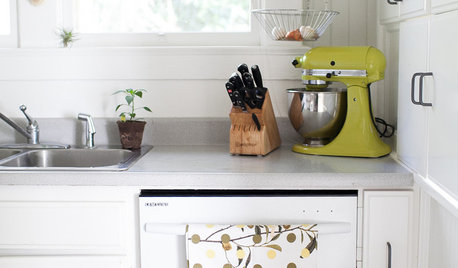
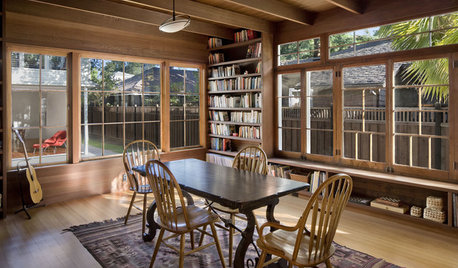
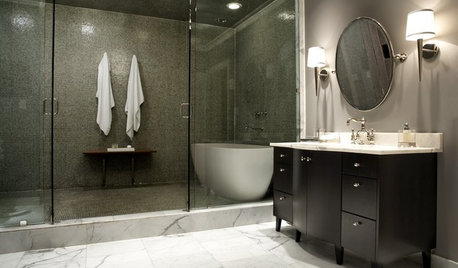


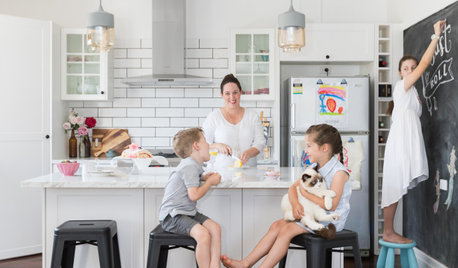
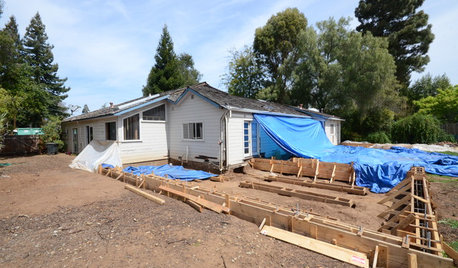
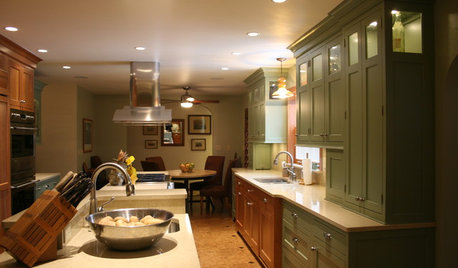
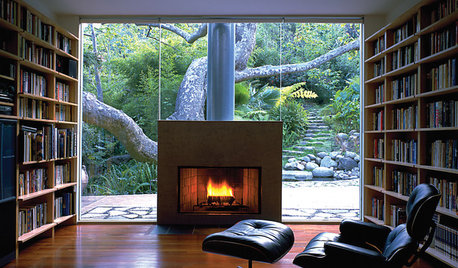







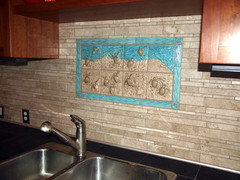


ineffablespace